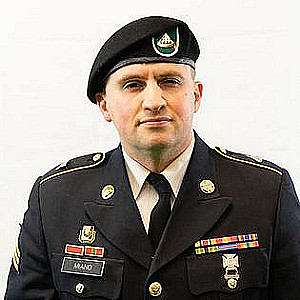Up from Slavery, An Unfinished Journey: audiobook
Description
Read MoreVocal Characteristics
Language
EnglishVoice Age
Middle Aged (35-54)Accents
North American (General)Transcript
Note: Transcripts are generated using speech recognition software and may contain errors.
preface, jean Jacques Rousseau said that plants are shaped by cultivation and men by education. Man is born weak and needs strength. He is born totally un provided and needs aid, he is born stupid and needs judgment. Everything he does not have at birth, and which needs when he is grown is given him by education. Rousseau's philosophy of education was one black people understood in the early days of the history of the United States, education meant freedom. One would travel far or lay down his life in the attempt to obtain learning. I suppose that is why I am writing this book to tell the story of a journey to freedom, paul Laurence. Dunbar High School stressed excellence in all things and never allowed the school to fall into the category of a black subculture or popular fads. Reminiscing a while back with a reporter from the Washington Post. Senator Edward Brooke class of 1937 said we sort of lived in a cocoon, Dunbar, sort of had an intellectual elite. We were not aware of what we were missing because of segregation. It was very competitive. Dunbar took the cream of the crop. They did well at Howard, where I went, ***** history week was observed and in american history they taught about the emancipation of the slaves and the struggle for equality and civil rights. But there was no demand by students for more, no real interest in africa and its heritage. We knew about africa, as we knew about Finland. The Dunbar culture is to put it mildly controversial even in current times, William raspberry, summarized in a column he wrote in the Washington post that if a room is filled with middle aged black people who grew up in Washington and someone mentions the word Dunbar, that person will have to take over that. One word will divide the room into two emotion charged, outraged factions, those who did and those who did not attend Dunbar High School when Dunbar was Dunbar, the ensuing arguments are usually highly emotional and predicated on biased opinion and innuendo with little knowledge or understanding of history, slavery. Jim, Crow segregation, family, the church, the community and now US welfare policy are all part of the big picture pertaining to the significance of Dunbar and urban education in the United States. The achievements of M Street and Dunbar students might have some influence on questions about educating black Children, had they not been ignored? No scholarly study of the school has yet appeared, and the entire literature on the subject consists of one slim volume, The Dunbar story, printed privately in 1965 by mary Gibson Hundley, a retired Dunbar teacher, at her own expense. Where the school has been noticed at all, it has been brushed aside as a middle class black school and local tradition in Washington suggests that its students were predominantly light skinned blacks, many scarcely distinguishable from whites. The facts do not support either assertion, but the attempt to dismiss the accomplishments of the Dunbar experience as a significant phenomenon why I was born and raised in the Washington, D. C. My father grew up on a farm in Virginia and had only 1/4 grade education. He obtained a G. E. D. When he came to Washington in his teens and worked a variety of vocations beginning as a laborer on construction sites. He learned bricklaying, carpentry and truck driving and he worked as an automobile mechanic. Dad also was a religious man who heightened his reading skills by reading the bible. He preached when he was called and sang and wrote gospel music. He was a self taught musician who played guitar, several wind instruments, the piano and drums.
